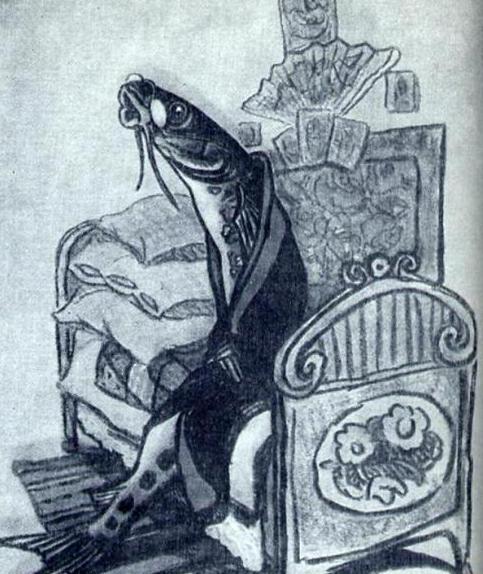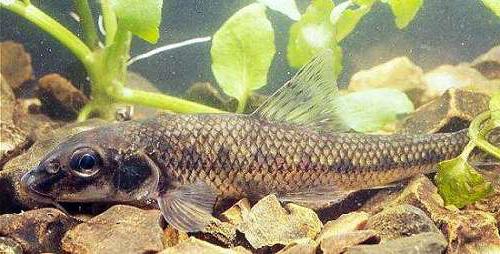Saltykov-Shchedrin "A wise gudgeon". Summary
This article will consider one of the pagesthe work of the famous Russian writer Mikhail Yefgrafovich Saltykov-Shchedrin - the story "The Wise Gudgeon." The summary of this work will be considered together with its

Saltykov-Shchedrin is a well-known writer and satirist,who created his literary creations in an interesting style - in the form of fairy tales. The exception is not and "Wise minnow", a summary of which can be told by two sentences. However, it raises acute socio-political problems. This story was written in 1883, during the repressions of Emperor Alexander III, directed against the active opponents of the tsarist regime. At that time, many progressive-minded people already understood the depth of the problems of the existing system and tried to convey this to the masses. However, unlike anarchist students who dreamed of a power coup, the advanced intelligentsia tried to find a way out of the situation by peaceful means, with the help of appropriate reforms. Only with the support of the entire public could it be possible to influence the situation and prevent the existing mess, Saltykov-Shchedrin thought. The "wise gudgeon", whose brief content will be given below, sarcastically tells us about a certain part of the Russian intelligentsia, who in every possible way shirks social activity out of fear of punishment for freethinking.
"Wispy minnows": a summary
Once upon a time there was only one gudgeon, but not a simple one, butenlightened, moderately liberal. From his childhood, his father instructed him: "Beware of the dangers that lie in wait for you in the river, there are plenty of enemies around." The minnow decided: "It's true, at any moment you either get hooked


This is the summary. "Wise minnow" tells us about useless to society people who live their whole lives in fear, avoiding the struggle in every way, arrogantly considering themselves enlightened at the same time. Saltykov-Shchedrin once again cruelly ridicules the miserable life and way of thinking of such people, urging not to hide in a hole, but to bravely fight for a place under the sun for himself and his descendants. Not only respect, but even pity or sympathy in the reader does not evoke a wise gudgeon, whose brief content of existence can be expressed in two words: "he lived and trembled."
</ p>







